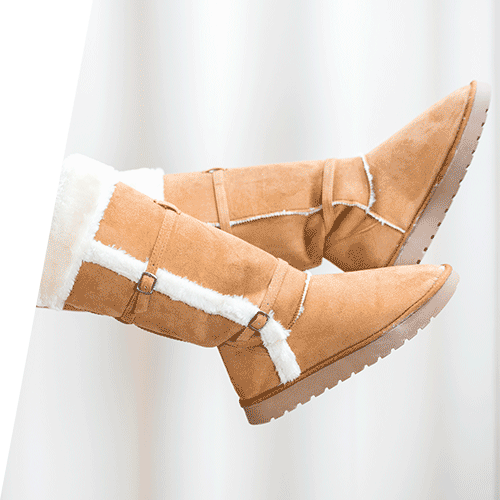Case Study 3: International Enforcement (Deckers Outdoor Corporation)
 Flat-soled,
sheepskin-lined boots were developed in the 1920s in rural Australia by the sheepskin industry. These boots were commonly
referred to as “uggs.” In the 1960s, these distinctive boots became popular among surfers in Australia and New
Zealand. In the 1970s, an enterprising Australian surfer named Brian Smith brought some samples of Australian ugg boots
with him to California in the belief that there would be a market in the United States for the boot. He registered UGG as a trademark
in the United States.
Flat-soled,
sheepskin-lined boots were developed in the 1920s in rural Australia by the sheepskin industry. These boots were commonly
referred to as “uggs.” In the 1960s, these distinctive boots became popular among surfers in Australia and New
Zealand. In the 1970s, an enterprising Australian surfer named Brian Smith brought some samples of Australian ugg boots
with him to California in the belief that there would be a market in the United States for the boot. He registered UGG as a trademark
in the United States.
In his own words:
I…settled down to be an instant millionaire. What I didn’t know was that Americans didn’t understand sheepskin like Aussies do. The shoe trade rejected us due to the misperception that it was hot, delicate, prickly and couldn’t be exposed to mud, slush etc.
But, Californian surfers returning from trips Down Under had brought back boots for their buddies, so they were really well known in that market. I focused on selling through surf shops….The UGG business finally got momentum.3
COMPANY GROWTH
Deckers bought Smith’s company in 1995, and the brand has expanded well beyond the original sheepskin boots to include such items as gloves, slippers, earmuffs and other styles of boots as well as shoes. Sales of UGG brand products have reached US$1 billion.
 The company currently has registered trademark rights
in more than 130 countries. In most countries, it holds registrations in the word “ugg” for boots. However, it could
not register the trademark UGG for boots in Australia or New Zealand because the term was generic in these countries.
The company has, however, registered UGG Australia and its sun design for boots as well as the word “ugg” for other products
(not boots).
The company currently has registered trademark rights
in more than 130 countries. In most countries, it holds registrations in the word “ugg” for boots. However, it could
not register the trademark UGG for boots in Australia or New Zealand because the term was generic in these countries.
The company has, however, registered UGG Australia and its sun design for boots as well as the word “ugg” for other products
(not boots).
 Deckers also holds industrial design registrations over a wide variety of footwear, including the original sheepskin
boot in a number of countries around the world.
Deckers also holds industrial design registrations over a wide variety of footwear, including the original sheepskin
boot in a number of countries around the world.
THREAT TO COMPANY: CHEAP KNOCK-OFFS AND COUNTERFEIT PRODUCTS
The ease with which fashion designs can be copied inevitably results in cheap knock-offs and counterfeit items circulating in the marketplace. Because of its global success with UGG boots, Deckers has been plagued by knock-offs and counterfeit products that enter its mainstream markets both online and in retail stores.
The online sales of counterfeit UGG boots and other UGG products have increased exponentially over time, as websites often use the word “ugg” or confusing variations in their domain names.
In response, Deckers has had to be vigilant and continuously monitor and engage in enforcement strategies.
“The Internet provides easy access to global markets and takes no account of national borders. If you are trading on the Internet you need to understand the laws of the country into which you are selling goods or services.“4
3 Dan Schawbel, “Brian Smith: How He Turned UGG Into A Successful Company“, Forbes (17 November 2014), online: <www.forbes.com/sites/danschawbel/2014/11/17/brian-smith-how-he-turned-ugg-into-a-billion-dollar-company/#70ce840d6c66>.
4 IP Australia, “UGG Boots“ (2006) at 2, online: <http://uggisabrand.com/files/17%20-%20IP%20AU%20Sheet.pdf>.